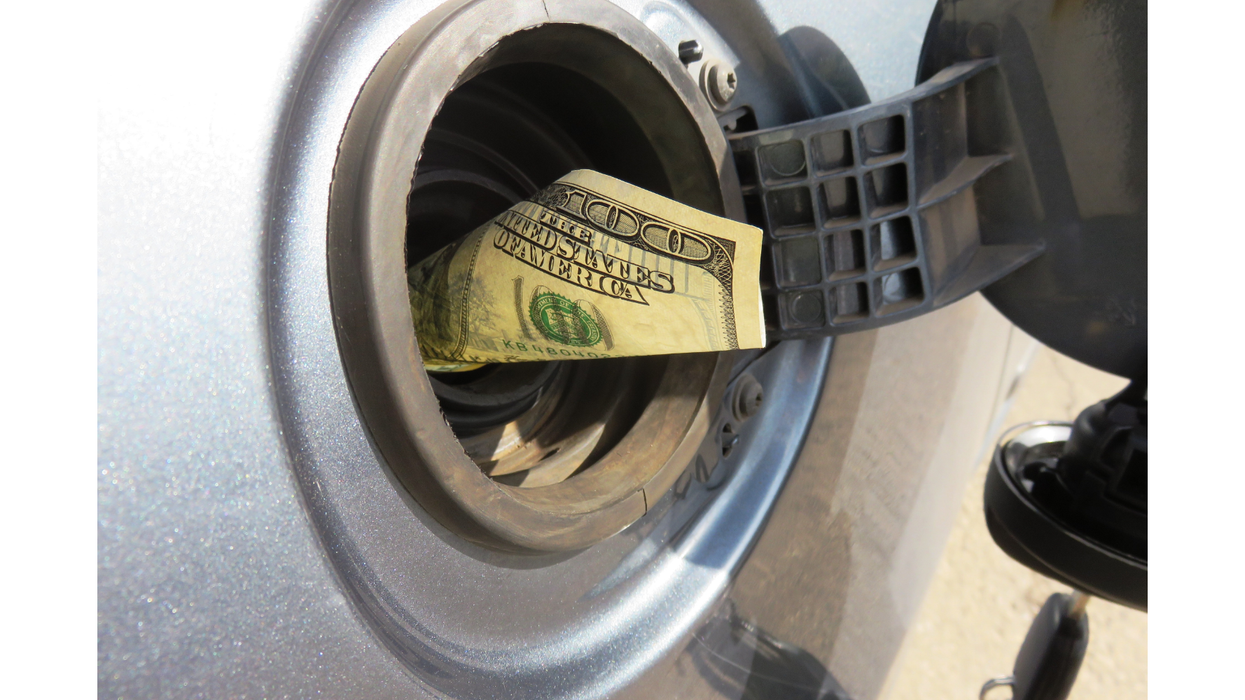Hill was policy director for the Center for Humane Technology, co-founder of FairVote and political reform director at New America.
I pulled into a gas station near San Francisco, and my eyes popped out of my head: $6 a gallon!
Here we go again, the roller coaster of gas prices. And it’s not just in California. Since January, the national average price has increased 57 cents to $3.66 per gallon, almost a 20 percent increase.
Who or what causes gas prices at the pump to soar like this? Is it Saudi Arabia/OPEC, Russia, inflation, Middle East wars, price gouging by oil companies, paid-off politicians? Like everyone else, usually I just grumble and pay, but this time I got mad and went looking for answers.
First I asked the manager at the gas station. “It’s the price of oil, nothing I can do about it,” he said.
Some quick research verified that, indeed, the price of oil rose recently from $78 per barrel to $85. But that only accounted for about 17 cents of the increase.
So then I looked on the website of the Western States Petroleum Association, a pro-industry trade group. I also searched the website of the Department of Energy. Those two organizations don’t always agree, but both said that there is no single cause of changing gas prices, blaming it on several factors including:
- The price of raw crude oil, which makes up half the cost at the pump. That price is determined by fluctuating global supply, but also by a global oil cartel, the Saudi-led Organization of the Petroleum Exporting Countries, which sets oil production quotas for each country to restrict competition and keep the price artificially high.
- The cost to refine crude oil into gasoline, including occasional refinery production shutdowns, scheduled and unscheduled.
- Seasonal factors, such as changing from cheaper gas blends used in the winter, leading to a natural price spike in the spring.
- Spot shortages, sometimes caused by geopolitical tensions. The wars in Ukraine and the Middle East have been significant factors, with crude oil prices now 34 percent higher than pre-Covid averages.
- Local add-on taxes, which vary state to state.
Further complicating matters, pump prices don’t usually reflect market conditions that day or week, but reflect costs incurred weeks, even months before, making cause and effect harder to track.
Oh boy. It’s getting difficult to find the right group to blame. But the elephant in the room is whether the oil industry is price gouging consumers. Can we figure that out, at least?
The California Energy Commission found that when gasoline prices jumped to $5.70 per gallon in September 2023, the state’s oil refiners more than doubled their 66 cent margin from the previous January, the largest increase ever ... even though crude oil prices and other factors didn’t double. The state’s oil refiners ultimately made three times more than before.
Also, two anti-monopoly lawsuits have been filed recently, which present compelling evidence that the largest U.S. shale oil producers have conspired with OPEC to keep gas prices high.
To many energy experts, this gathering data strongly indicates that oil producers and refiners are gouging consumers. Oil companies hauled in $63 billion in just 90 days. Somehow the oil industry always finds its way to the pig trough.
That’s depressing. Is there nothing President Joe Biden and other elected politicians can do?
In October 2022, Biden mounted the bully pulpit, accusing the oil companies of profiteering during the Ukraine-Russia war. He singled out ExxonMobil, which reported a record $19.7 billion earnings in three months, saying “Exxon made more money than God.”
In addition to applying political pressure and issuing threats to tax the oil companies’ excessive profits, Biden tapped into the Strategic Petroleum Reserve to release 180 million barrels of oil, the largest release in U.S. history.
Did it work? The price of gas fell from over five dollars to $3.76 per gallon, and naturally the Biden administration took credit. His opponents said prices would have declined anyway.
California Gov. Gavin Newsom passed a first-in-the-nation law to increase transparency through extensive monitoring of oil refiners for excessive profit-making, and authorizing price caps as well as penalties for price gouging. California has the nation’s highest average gas prices at $5.41 per gallon, almost $2 higher than the national average. It requires a cleaner, more expensive fuel blend that only certain refineries can deliver, sometimes leading to production shortages. Californians value having cleaner air, but they pay a premium price for it.
And so it goes. My conclusion? Gas prices come and go like the weather. Fortunately current prices are below last summer's prices, and well below the record high in 2022 after Russia’s invasion of Ukraine drove the national average to over $5 per gallon. So that’s progress.
Yes, there is certainly price-gouging going on, because the magnitude and timing of the profit surge is too much of a coincidence to believe otherwise. But it’s hard to say how much, or to legally prove it.
And while refinery production shortages and winter/summer blending issues can drive up gas prices locally, nationwide price swings are almost always due to the OPEC-driven global prices for oil. It’s misleading to blame a president for large price spikes when that phenomenon is happening around the world.
So given all these complex factors, here’s my prediction for gas prices: It’s just like with the weather — highs tonight, lows tomorrow and precipitation is expected.




















